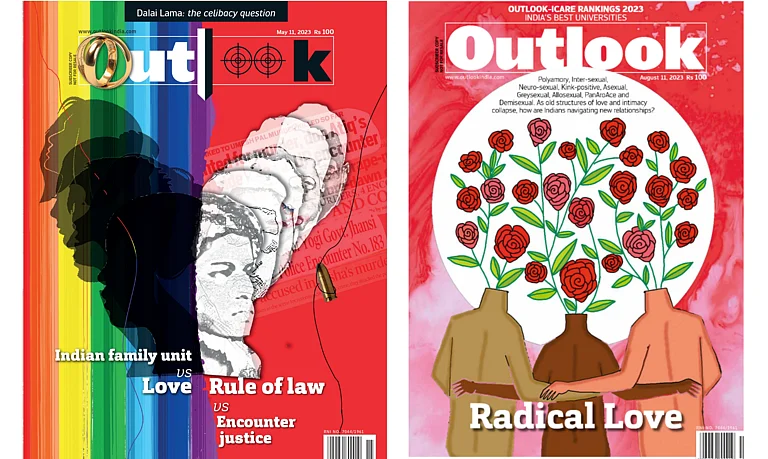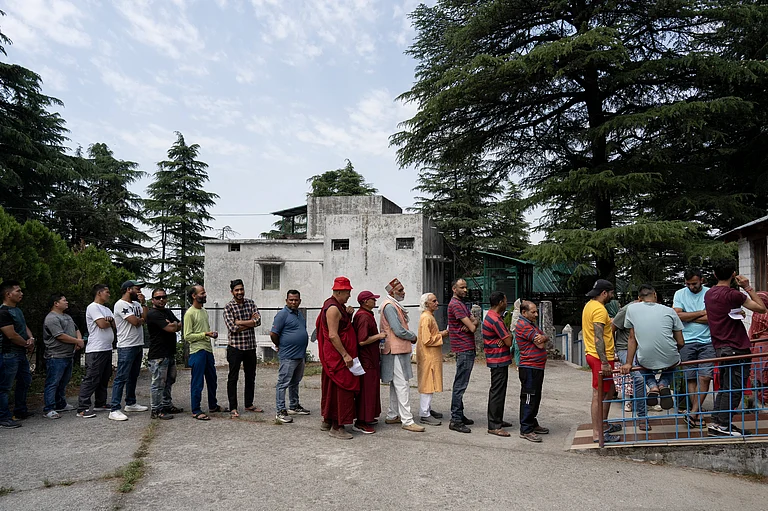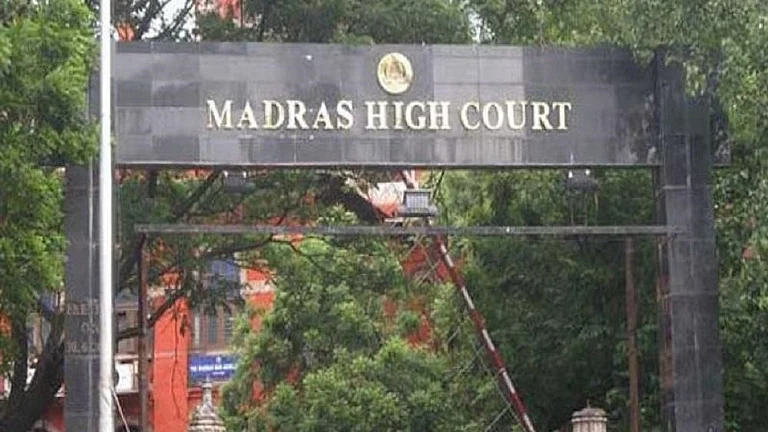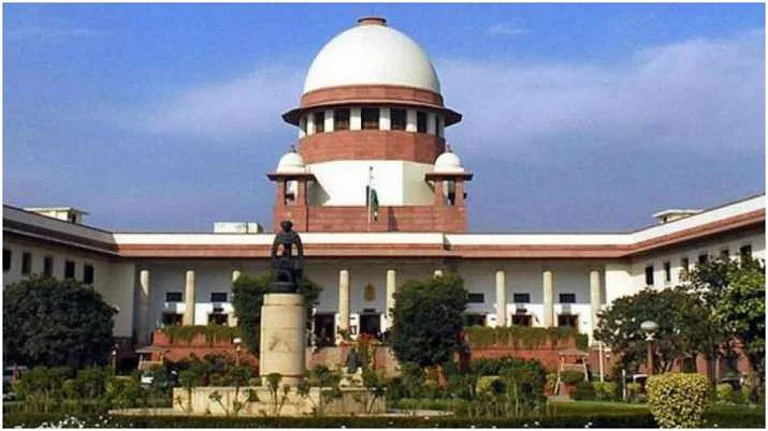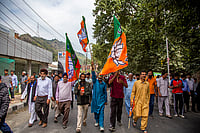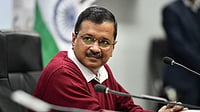In a significant ruling, the Supreme Court has affirmed that divorced Muslim women have the right to seek maintenance from their ex-husbands under Section 125 of the Code of Criminal Procedure (CrPC), in addition to provisions under the Muslim Women (Protection of Rights on Divorce) Act, 1986. The division bench, comprising justices BV Nagarathna and Augustine George Masih, clarified that this entitlement extends beyond the iddat (a mandatory waiting period after divorce) stipulated in the 1986 Act.
The apex court’s decision addresses longstanding issues faced by Muslim women, highlighting the challenge of economic sustainability post-divorce. The case was brought to the fore when a petitioner in Telangana High Court contested his ex-wife’s maintenance claim under Section 125 CrPC, arguing that the 1986 Act superseded the secular law.
Contrary to this argument, the Supreme Court emphasized that Section 125 CrPC prevails over the 1986 Act, ensuring continuous maintenance for divorced Muslim women until they remarry or are able to support themselves. The bench underscored that maintenance is not a matter of “charity” but a “fundamental right”, acknowledging the financial dependency of homemaking wives on their husbands.
The recent judgment harmonizes the provisions of Section 125 CrPC with the 1986 Act by interpreting Section 3 of the latter to allow maintenance beyond the iddat period. It has emphasized the right of Muslim women to seek relief under Section 125 of the CrPC, extending maintenance beyond the iddat period.
The Court interpreted the 1986 Act to ensure it does not curtail the secular rights of divorced Muslim women, clarifying that maintenance cannot be limited to the iddat period. This principle was reaffirmed in subsequent cases such as Shabana Bano v. Imran Khan (2010) and Khatoon Nisa v. State of Uttar Pradesh and Others (2014).
The court’s stance on this matter was underscored in previous cases such as Danial Latifi and Another vs. Union of India (2001), Shabana Bano vs. Imran Khan (2010) and Khatoon Nisa vs. State of Uttar Pradesh and Others (2014).
In Danial Latifi and Another v. Union of India (2001), the court criticized the 1986 Act for denying divorced Muslim women the right to maintenance from their husbands beyond the iddat period, instead requiring them to rely on relatives or approach the Waqf Board for support. This approach was deemed inadequate compared to the provisions of Section 125 of the CrPC, which the court found more equitable.
The 1986 Act at a Glace
It addresses the issue of maintenance for divorced Muslim women through Section 3. This section stipulates: “Mahr or other properties of Muslim woman to be given to her at the time of divorce. — (1) Notwithstanding anything contained in any other law for the time being in force, a divorced woman shall be entitled to — (a) a reasonable and fair provision and maintenance to be made and paid to her within the iddat period by her former husband; (b) where she herself maintains the children born to her before or after her divorce, a reasonable and fair provision and maintenance to be made and paid by her former husband for a period of two years from the respective dates of birth of such children.”
What Section 125 of the CrPC Says
It outlines provisions for maintenance: “If any person having sufficient means neglects or refuses to maintain: (a) his wife, unable to maintain herself, or (b) his legitimate or illegitimate minor child, whether married or not, unable to maintain itself, or (c) his legitimate or illegitimate child (not being a married daughter) who has attained majority, where such child is, by reason of any physical or mental abnormality or injury unable to maintain itself, or (d) his father or mother, unable to maintain himself or herself, a magistrate of the first class may, upon proof of such neglect or refusal, order such person to make a monthly allowance for the maintenance at such monthly rate as such Magistrate thinks fit.”
Reactions to the SC Verdict
Reacting to the verdict, a divorced Muslim woman, speaking anonymously to Outlook, welcomed the decision as a step towards addressing the socio-economic challenges faced by Muslim women. She highlighted the societal and economic complexities that often leave divorced women financially vulnerable.
She said marriage in Islam is a contract where both spouses are obliged to treat each other with kindness and compassion. If the union no longer brings peace, divorce is an option, respecting the individuality of each party. The mehr, an essential consideration like any contract, may or may not be monetary and is typically settled at the nikah. In Islam, marriage aims to establish legitimate children and follow inheritance rules.
The husband’s duties, according to her interpretation, include protection, provision and support; if he fails, women can seek maintenance or opt for khula. Indian courts offer relief through Section 125 of CrPC, supporting women regardless of religion or marital status.
Among Muslims, divorce isn’t instant like triple talaq; it follows a process. After divorce, the iddat period of 3 months and 10 days is mandated to rule out pregnancy. The husband provides maintenance during iddat, but afterward, he is not financially responsible. Post-divorce maintenance among Muslims varies in practice, challenging the Muslim Personal Law Act 1986, which offers no post-marriage support. Cultural practices in the subcontinent often differ from those in Muslim-majority countries.
“Many divorced women face disadvantages, as marriage has become commercialized, with dowry often demanded from the bride’s family. This results in societal and familial challenges for divorced women, who may lack property ownership and rely on jobs for financial independence. In divorce cases, women may abuse anti-dowry laws to remain in marriages or seek maintenance, as inheritance rights are often denied. Male-dominated narratives around divorce often lead to women fighting for their rights, contrary to Islamic principles where support should be automatic,” she explained.
She said the community’s “corruption” of Islamic practices and politicization of women’s issues impact how non-Muslims perceive and address these challenges. “The judgment aims to support the unpaid work of wives at home, which in Islam is already provided as nafaqah during marriage. However, the reality often sees mehar payments neglected, leading to irregular marriages where wives are pressured to forgo their rights. This leaves women without financial stability or support from the community. Maintenance, while welcomed judicially, can hinder remarriage opportunities and tie women to children who may not carry their surname or inherit from them. Additionally, remarried fathers with new families can complicate inheritance further,” she added.
While judicial efforts to grant maintenance are appreciated, she said, they face political opposition against the Uniform Civil Code. “The Muslim community must reconsider and reform towards the original intent of Islam, where women were recognized as individuals integral to family unity — as mothers, daughters, sisters, wives, grandmothers and community builders,” she concluded.
The judgment is seen as a significant move towards ensuring gender equality and upholding the rights of Muslim women under Indian law. It also underscores the ongoing debate around the need for a Uniform Civil Code (UCC) in India.
“The top court’s decision reflects a broader call for reforms within the Muslim community to align with the original intent of Islamic principles, ensuring that women are treated fairly and equitably in matters of marriage and divorce,” she said.
The All India Muslim Personal Law Board (AIMPLB) has responded cautiously to the verdict, calling it a departure from Sharia laws. The Board emphasized that Prophet Mohammad had taught that, among all permissible deeds, divorce is the most disliked in the sight of Allah. Therefore, it is preferable to strive to maintain marriages by employing all permissible measures to safeguard them, and to adhere to the guidelines mentioned in the Holy Quran.
However, if maintaining married life becomes unfeasible, divorce is provided as a solution for humanity. The Board noted that this ruling could exacerbate the difficulties faced by women who have successfully exited painful relationships.
Additionally, the AIMPLB also argued that it is not logical for a man to be held responsible for financially supporting his ex-wife when the marriage itself no longer exists.
The Board is exploring all possible avenues — legal, constitutional, and democratic — to ensure that this decision by the Supreme Court is reversed.
AIMPLB spokesman SQR Ilyas stated, “The decision runs counter to Sharia law principles, which regulate Muslims in India under the Shariat Application Act (1937), akin to the Hindu Code governing Hindus. Article 25 of the Constitution ensures freedom of religion, and therefore, courts should avoid applying IPC or CrPC in a manner that contradicts these provisions.”
He revealed that the Board’s legal committee is presently scrutinizing the judgment. He mentioned, “Upon their counsel, the Board may consider pursuing legal and alternative avenues.”
The Jamiat Ulama-i-Hind (JUH) also took a cautious approach, choosing to thoroughly analyze the details of the verdict before determining their course of action. “Similar judgments have been issued previously as well. We plan to scrutinize this verdict meticulously and will explore legal remedies if deemed necessary. We oppose rushing into decisions as matters of this nature demand careful consideration and a comprehensive understanding,” it added.
What does this judgment mean? Does it mean upholding primacy over any personal law? Zakia Soman, a women’s rights activist prominent in the movement against the abolition of triple talaq, expressed her appreciation for the recent judgment, describing it as “progressive”.
According to her, the judgment reaffirms the constitutional commitment to gender justice and equality. She pointed out that while the Holy Quran mandates maintenance for divorced wives, this provision was not integrated into personal law due to the absence of codification. This omission, along with resistance to reforming Muslim personal and family laws, has perpetuated injustice.
Soman welcomed the judgment for addressing the longstanding needs of Muslim women, enabling them to achieve legal parity with women of other faiths. She hailed the verdict as a positive step forward.
“When the court emphasizes that maintenance is not a charity but a fundamental right, it challenges the patriarchal mindset,” she remarked.
She highlighted that the verdict aims to dismantle patriarchal norms and acknowledges women’s rights. “It will also awaken greater consciousness and empowerment among Muslim women,” she added.
Soman observed a shift within the Muslim community, noting diminished influence of “conservative” voices and increasing support for reform. “There is a growing understanding within the community about the complexities involved. This judgment will certainly bolster demands for change.”
She stressed the importance of upholding pluralism in a secular democracy, cautioning against mistaking diversity for perpetuating unjust patriarchal practices. In a climate of religious polarization, Soman viewed the Supreme Court’s ruling on alimony for Muslim women as a step towards progress.
When asked about AIMPLB’s opposition to the judgment and calling it a “judicial overreach”, she said, “I don’t agree with their interpretation of Islam. They are exposed now, and the community has now understood them. They supported triple talaq, which was completely un-Islamic. It won’t be an overstatement that they are they are the real problem, not the religion. Their statements give out a wrong impression about Islam and embolden Hindutva forces to show in bad light light.”
Asked from 1986, when the State faced criticism for yielding to extreme voices opposed to codifying personal laws, to the criminalization of instant triple talaq in 2019, and now with this recent judgment, the trajectory appears aimed at advancing gender justice and gender-neutral laws, Advocate Areeb Uddin noted that the judgment reaffirms the rights of Muslim women concerning maintenance. “It addresses situations where women are unlawfully divorced, such as through triple talaq. The court stated that ‘when divorce is void and illegal, such a Muslim woman can seek remedy under Section 125 of the Cr.PC’.”
He acknowledged that while the judgment may pose challenges for some, overall it represents a progressive step by broadening women’s rights in terms of seeking maintenance beyond personal laws.
Regarding the iddat period, another significant case on this matter is Danial Latifi and Another vs Union of India (2001), where a five-judge Constitution Bench of the Supreme Court upheld the constitutional validity of the new Act.
“This case interpreted Section 3(a) of the Act to ensure the rights of divorced Muslim women. It was ruled that the former husband must provide maintenance for the three-month iddat period and additionally provide a fair and reasonable provision for her entire life within that period,” he pointed out.
Advocate Abu Bakr Sabbaq, practicing at the Delhi High Court, too criticized the AIMPLB’s opposition to the verdict, arguing passionately. “They claim Islamic laws do not provide for a woman to claim alimony from her ex-husband after the iddat period. Yet, they conveniently overlook the provisions established during the era of Prophet Mohammad and his companions in Mekkah and Madina. These arrangements ensured the livelihood, well-being, and dignified life of such women,” he pointed out.
He questioned the practicality of their stance, highlighting, “They propose that if a divorced woman remains unmarried and has no one to support her, the Waqf Board will cover her expenses. However, waqf boards typically provide only Rs 300-500. Is this sufficient to sustain an individual’s livelihood?”
Senior journalist Qamar Ashraf offers a different perspective on both the supporting and opposing arguments. He asserts that after divorce, both parties return to a state of equality and are free to live independent lives as strangers, without any obligation to support each other.
He attributes much of the confusion surrounding Muslim marriage, divorce and maintenance to the failure of the ulema (Muslim scholars) to effectively communicate Islamic teachings on these matters. This misunderstanding, he believes, has influenced not only public and media perceptions but also judicial interpretations.
“Islam regards marriage as a sacred institution where men and women are equal. However, upon marriage, an institutional framework is established where husbands are tasked with leadership, akin to other institutional roles. Following divorce, both parties revert to a state of equality and are free to pursue their lives independently. They become strangers with no responsibility to support each other,” he explained.
He questioned the practicality of expecting continued financial support after divorce, stating, “Is it not unreasonable for a man to maintain financial obligations towards a woman with whom he has no ongoing relationship?”
According to him, clarifying these fundamental concepts is crucial to prevent misinterpretations from influencing legal outcomes.







